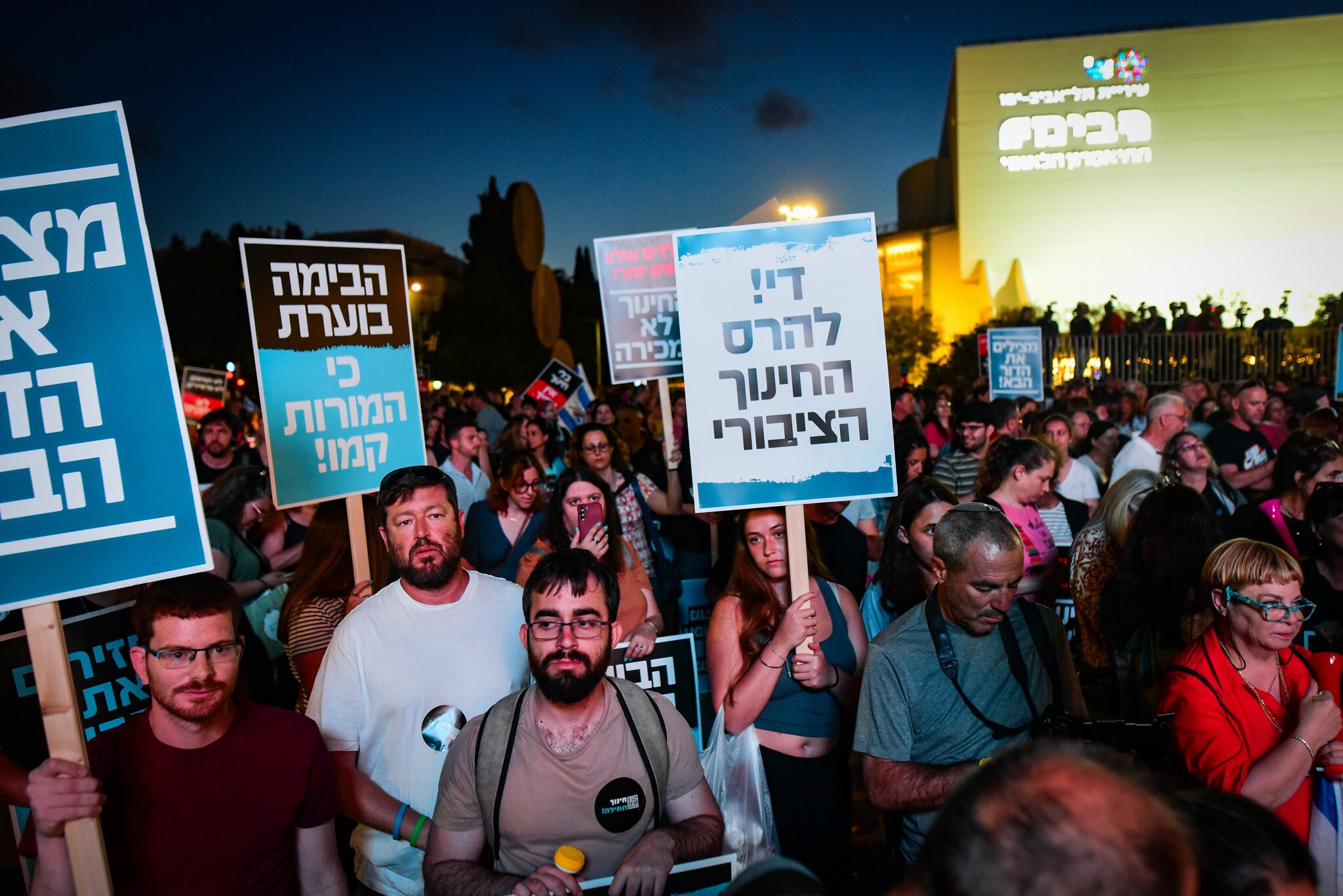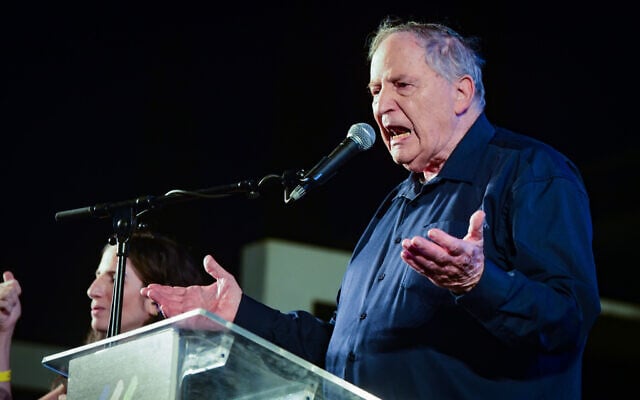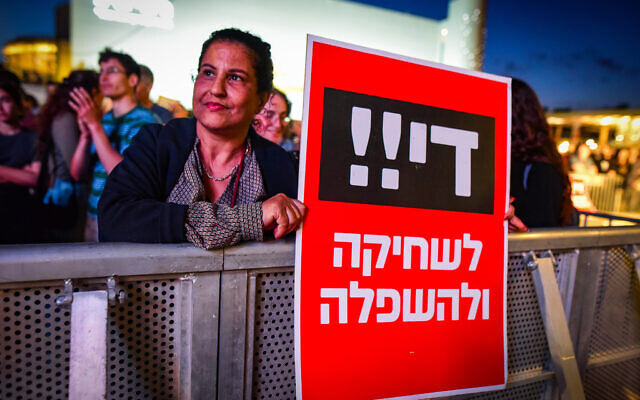



Hundreds of teachers gathered in Tel Aviv’s Habima Square on Wednesday night to demonstrate against recent salary cuts amid ongoing disputes between Israel’s educators and the finance and education ministries.
Some 1,000 people were in attendance, according to an estimate published by Ynet, and Tel Aviv Mayor Ron Huldai joined the demonstration in solidarity.
Turnout was significantly lower than organizers had hoped, as according to Channel 12, the teachers’ union had expected some 8,000 people to attend.
Teachers across Israel in recent weeks have been striking, first lawfully and later by taking sick leave after the Finance Ministry decided to cut public sector salaries by 3.3% to help finance the war against Hamas in Gaza.
Addressing the crowd at Habima Square, Secondary Schools Teachers Association Chairman Ran Erez said that the aim of the protest was to “convey to the government that the public is no longer willing to remain silent.”
The strike began earlier this month with the delayed opening of elementary schools on May 4, as some teachers only reported to work at 10 a.m., and others did not show up at all.
While the strike resulted in the Finance Ministry reaching an agreement with the Israel Teachers Union that same day, in which salaries would be cut by 0.95% rather than 3.3%, many teachers were unhappy with union leader Yaffa Ben David’s concessions in the negotiations.
In response, they continued with an unofficial strike, calling in sick for several days in a row, until the Tel Aviv Labor Court ruled that they could not legally strike over the issue and ordered them to return to work.
The following day, the teachers’ union and the Finance Ministry came to an agreement, under which monthly wages will be cut by 0.95% and two additional vacation days would be added, on the Lag B’Omer festival this year and next year.
After the strike concluded, however, thousands of teachers were informed that they should once again expect a reduced paycheck, as the Education Ministry informed them that the days of work they had missed would be considered “absences due to strike” and so they would not receive sick pay, despite calling in sick.
The decision would apply even to those who submit doctors’ notes, with several exceptions in place for circumstances including if the teacher was hospitalized, underwent any medical procedures, or is pregnant.
Commenting on the Labor Court’s ruling, Erez told the protesters that while they may not legally be allowed to launch additional strikes against the salary cuts, the union would “continue to fight through protests, in the media, in advertisements, until these ministers who are harming us understand that without education, this country has no future.”
Speaking to Ynet at Habima Square, Corinne Levy, a teacher from Ashdod explained that she was protesting “on behalf of all the teachers who face the impossible every day…even when the system collapses, even when the pay is embarrassing, even when our dignity is trampled on.”
“We are here because we are fed up with the Finance Ministry trampling on us. We are not asking for handouts, we are demanding justice and fair pay,” she said. “Without teachers, there is no country, without teachers, there is no future.”


